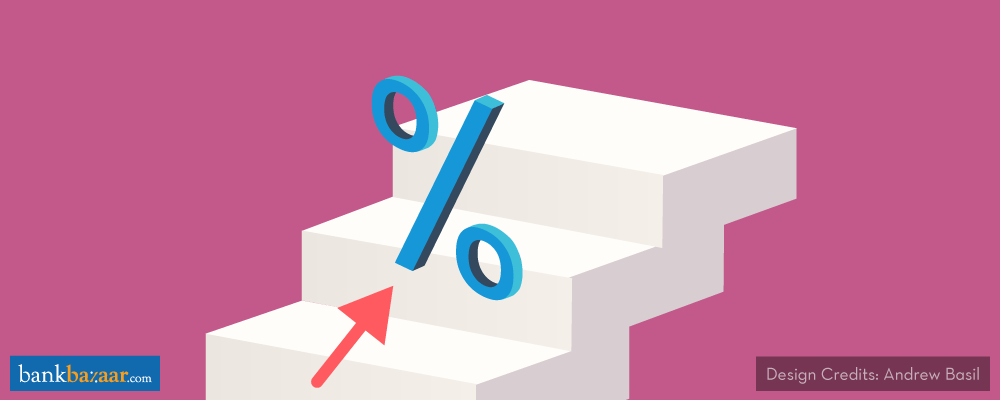While the RBI hasn’t announced an increase in the repo rate yet, banks are proactively increasing interest rates on deposits and loans. Read on to know what consumers can do to make the best of this situation.

Between 2014 and 2017, we saw the Reserve Bank of India reduce the repo rate seven times. As inflation fell, so did the interest rate. Consumers benefitted by the way of cheaper loans. But they also earned poorer returns on Fixed Deposits and small savings scheme such as PPF, which are returning their lowest in several years.
Now, interest rates are beginning to rise again. While the RBI hasn’t yet announced an increase in the repo rate yet, banks are proactively increasing the interest rates on deposits and loans. Let’s take a look at how consumers can do to make the best of this situation.
1 – Exit Long Term Debt Funds
Debt Mutual Funds come in various categories. Given the current macroeconomic scenario, it would be best to pick only liquid funds or short-term funds. These would continue to deliver moderate returns with none of the volatility of long-term funds. Interest rates have an inverse relationship with bond yields. Long-term bonds are most volatile during an interest rate rise. To avoid losing money, you should immediately shift to funds with securities of shorter maturity periods.
2 – Refinance Loans
Interest rates on loans have risen only marginally. This is still a good time to take a long-term loan for a Home or a Car as these loans are still attractively priced in the 8.5% range. Before they rise further, you can take a new loan to fund your purchases. If you’re paying a higher interest rate (say, 9% or more), you can still consider refinancing your loans and move to cheaper ones.
3 – Exit Low-Rated Bonds & Deposits
You may have purchased debt instruments – corporate bonds or corporate deposits. They have with credit ratings. The safest such securities have the highest ratings – AAA, AA, A, A+, etc. Riskier securities have lower ratings – B, C, D, etc. These present a higher risk of not getting your promised interest income. In the worst cases, you may also not get your principal back. When interest rates rise, a corporate offering a low-rated bond or deposit will have greater challenges managing its debts. Therefore it may default on payments. It would be best to exit such instruments at the earliest.
4 – Settle Existing Loans
If you’re approaching the end of your loan, you may want to avoid the increase in interest rates. If possible, you should settle your loan now instead of having your tenure lengthened when the interest rate rises. This would save you from having to pay higher interest towards the loan.
5 – Relook The FD Market
You will start earning higher returns on fixed deposits with rising interest rates. However, for most small depositors, it wouldn’t make sense to break out of old FDs and reinvest in new ones. For example, reinvesting from a 6.5% FD to a 6.75% one will not make a big difference to your returns, plus earn you a penalty. However, you can consider this option once your gains appear sizeable. But reinvesting from a 6.5% FD to an 8% one will certainly make sense. However, there’s still time before the interest rates reach those heights again.
6 – Get Back To Small Savings Again
Schemes such as the PPF, Sukanya Samriddhi, and NSC are excellent. They are government-backed, allow you to save tax under 80C, and also generate returns in a tax-efficient manner as your returns are not completely taxed. Some of these schemes had become unattractive due to falling interest rates. However, as the rates rise again, they should be reconsidered.
BankBazaar.com is a leading online marketplace in India that helps consumers compare and apply for Credit Card, Personal Loan, Home Loan, Car Loan, and insurance.